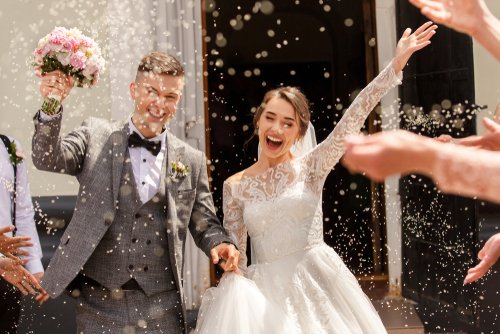Weddings law reform – could it be just what you’re looking for?
An in-depth review of 70-year-old weddings law in the UK has come out overwhelmingly in favour of radical reform.
As well as proposing that the system is freed up to allow couples greater choice over wedding venue, content and who marries them, the Law Commission has suggested providing financial relief for cohabiting couples at the end of their relationship.
It comes as a cross-party committee of MPs also calls for greater legal protection for cohabiting couples, highlighting the fact that they currently lack even the most basic of rights.
Wards Solicitors’ Family Law and Divorce Team is fully behind these proposals.
Who could this reform of weddings law help?
It could help co-habiting couples who have had what’s known as a non-qualifying religious ceremony or a non-religious ceremony that is not legally recognised.
For a wedding to be lawful in England and Wales, it must meet various regulations and comply with the Marriage Act 1949.
Currently, religious-only marriages – for example, an Islamic nikah wedding – and non-religious ceremonies like humanist weddings, do not count as legal under English law.
What would this proposed shake-up of wedding law mean?
The Law Commission of England and Wales has recommended that couples are given more choice over where they can legally get married and how any ceremony is conducted.
By focusing regulation on the official taking the ceremony, rather than on the building where it takes place, a wide range of wedding locations could be opened up as venues including gardens, beaches, parks and village halls.
This would also ensure fairer treatment for different religious with different rules and potentially create a path to legalising non-religious belief ceremonies such as Humanist weddings and other religious ceremonies.
What protection in law do cohabiting couples currently have?
Although being married brings automatic legal rights, cohabiting couples are not treated the same. This also includes those who are not recognised as legally married under current law.
There is a common misconception that unmarried couples obtain certain rights and privileges when they become a “common law wife or husband”.
The truth is that this term “common law” means absolutely nothing in today’s world. As the law stands no matter how long you have been together, you will not have the same rights as a married couple.
Get in touch
If you are cohabiting, there are sensible legal steps you can take to protect yourselves. A cohabitation agreement is a prudent move and our specialist Cohabitation Team can help you with this and also advise you on what to do if you have split up without one in place.
If you are getting married and would like advice on a pre-nuptial agreement, which can regulate how finances are managed during a marriage or civil partnership and how assets are divided should you split up, please contact our Family Law and Divorce Team.


